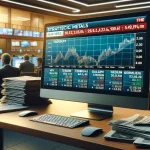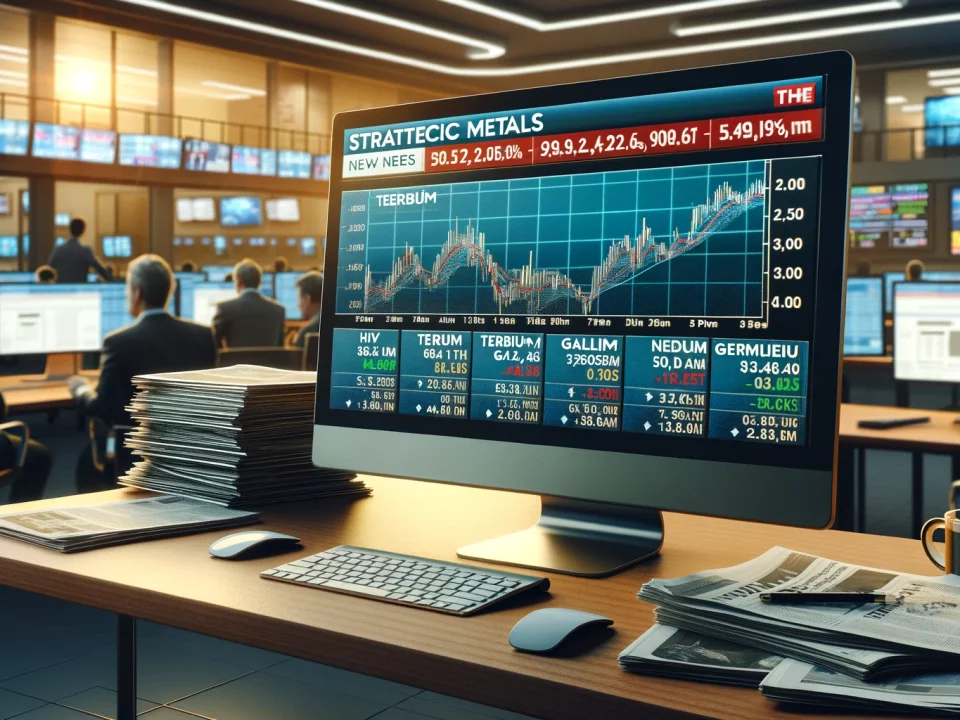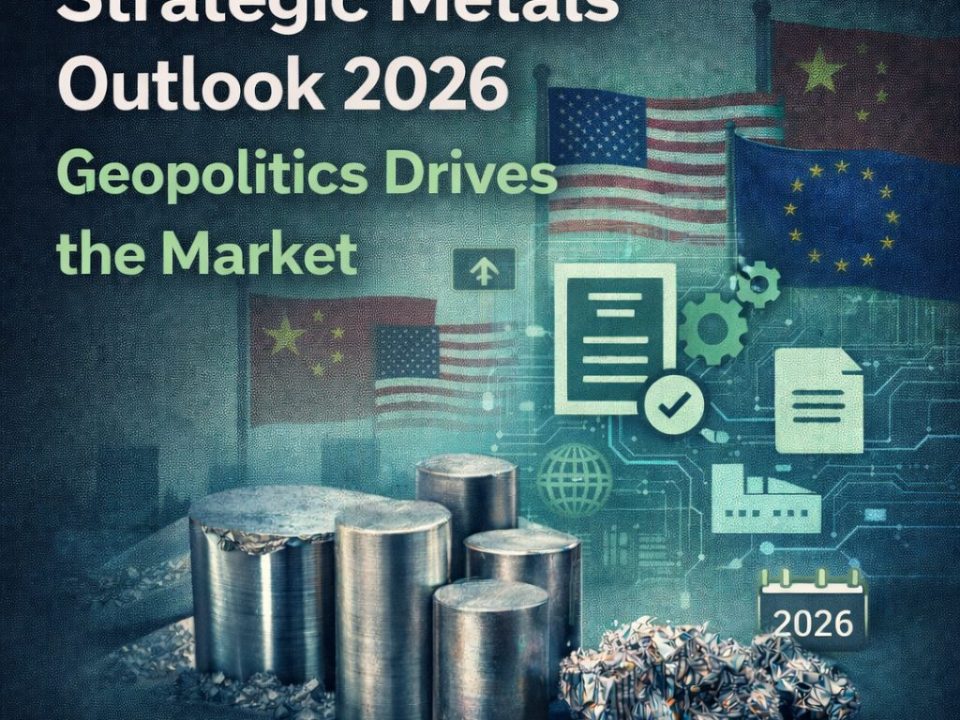
Weekly News Review June 24 – June 30 2024
June 30, 2024
Weekly News Review July 8 – July 14 2024
July 14, 2024Welcome to our weekly news review.
CHINA: RARE EARTHS BELONG TO THE STATE.
Further upgrading of the industry and more government control were announced.
The Chinese Government has announced new regulations for the country’s rare earth industry. The policies passed at a meeting of the State Council in April and announced over the weekend will come into force on October 1st. Thirty-two articles set out how the industry will be further developed. This is to be achieved primarily through state control.
Beijing hopes to reduce illegal mining activities and qualitatively upgrade the rare earth industry. The document, therefore, clarifies who owns these raw materials: the state.
No organization or individual may appropriate or destroy rare earth resources. To ensure this, a system for the traceability of products along the value chain will be established, and company monitoring will be expanded.
The impact of the new regulations on the export of rare earths needs to be determined. Still, the Government reserves the right to apply the rules to other critical raw materials.
The measures that will soon come into force should be seen in the context of China’s consolidation of the rare earth sector. This sector has long been highly fragmented, prompting the state to gain more control over its natural resources.
RARE EARTH RECYCLING:
Mkango Rare Earths UK, a UK-based recycling company for rare earth magnets, is expanding its production capacities. With financial support from the Government, a so-called long-loop pilot plant was operated at the company’s Birmingham site.
According to the company, which is part of the Canadian mining group Mkango Resources, the plant can chemically process magnetic scrap or swarf into rare earth carbonates and oxides. It is an addition to the short-loop pilot plant, which produces rare earth alloys and magnets and is managed by Mkango’s subsidiary HyProMag.
Both processes are based on technology developed at the University of Birmingham, which is one of the project partners. The second plant will increase technical flexibility, explains Nielson Beddoe, Processing Engineering Manager at Mkango UK, allowing different scrap streams to be processed and other rare earth products to be produced.
Mkango is essential in the UK’s efforts to become less dependent on raw material imports. HyProMag also markets recycling technology in Germany and the United States. According to Mkango, commercial production is planned there for 2025 and 2026.
FUTURE MADE IN AUSTRALIA ACT TAKES NEXT STEP:
Legislative subsidy package to strengthen domestic manufacturing and critical industries tabled in Parliament.
On Wednesday, the Future Made in Australia Act took its next step when it was introduced to Parliament. Australia’s Prime Minister Anthony Albanese presented the bill earlier this year (we reported). With the legislation, the Government seeks to strengthen domestic manufacturing and promote key industries such as critical minerals and clean energy through public and private sector funding.
The $15.17 billion (AUS$22.7 billion) act is a central element in the Albanese Administration’s strategy to catch up with other global subsidy initiatives to advance future technology fields and clean energy, such as the Inflation Reduction Act in the United States or the European Economic Security Strategy in the European Union.
According to Treasurer Jim Chalmers, who presented the bill in Parliament, the Future Made in Australia Act will strengthen Australia’s economic resilience and improve the investment environment of Down Under.
It is focused on boosting domestic supply chains, promoting jobs, and aiding Australia on its path to net zero.
According to The Daily Aus, the bill is expected to clear the House of Representatives but may face hurdles in the Senate as the Government does not hold a majority there. The Albanese Administration will thus need support for the act to become law.
INDIA KEEN TO INVEST IN STRATEGIC METALS:
The focus is shifting from India’s natural resources to foreign deposits to reduce import dependencies.
As an emerging economic power in the Indo-Pacific and now the world’s most populous country, India is increasingly trying to get a foothold in the raw materials sector. In addition to mining its natural resources to reduce its dependence on imports, foreign deposits have long since come to the fore.
According to Veena Kumari Dermal, Minister of State in the Ministry of Mines, quoted by the Economic Times, India is currently in talks with countries in Africa and Latin America.
According to Dermal, Indian companies are to be supported in overseas investments; the state-owned mining company KABIL, for example, plans to explore lithium in Argentina.
So far, China, especially, has been active in the countries of the so-called Global South, investing in local infrastructure and securing access to raw materials for numerous technologies in return.
Indian Trade Minister Sunil Barthwal said on Monday that India is also negotiating increased cooperation in the minerals sector with Australia, with which a preliminary free trade agreement has already been signed.
With its vast resources and significant mining industry, Australia is working to establish itself as an alternative commodity supplier to China.
Dermal and Barthwal were speaking at the India Energy Storage Week in New Delhi, a conference on vehicle electrification.
Two weeks ago, India signed an agreement with the United States in which raw materials play a prominent role alongside strategic technologies such as semiconductors.
For example, joint investments are planned in a lithium project in South America and a rare earth deposit in Africa.
COULD THE GERMAN STATE-RUN STRATEGIC METALS FUND FAIL?
According to a media report, ministries disagree on details.
The German Government announced last summer that it would establish a state-run raw materials fund with one billion euros.
With the capital, Germany plans to facilitate foreign and domestic resource projects. Now, the implementation of the fund has been dealt another blow.
After the project was initially put on hold due to the ruling of the Federal Constitutional Court and then restructured, it is now at risk of failing, according to German news outlet Handelsblatt.
The reason for this is a missing allocation letter from the Federal Ministry of Finance to the state development bank KfW, which is to manage the fund. The finance ministry is against KfW participating directly in projects, but this is precisely what the fund is intended for, the newspaper continues.
According to a brief study on German raw materials investments abroad published by the German Economic Institute (IW) earlier this year, the fund’s financial resources are questionable.
Countries like France and Italy provided twice as much funding for comparable instruments. German companies are also significantly less represented in countries rich in raw materials than, for example, Austria or Sweden.
An improvement in the investment environment, which would be necessary given the increasing dependence on raw material imports, could also help companies during initial exploration stages when they generate hardly any revenue.
This would be desirable considering the Critical Raw Materials Act, which makes diversifying raw materials supply and production in the European Union a legal requirement.
There are no mines for rare earths in the EU, but under the law, ten percent of annual consumption must be sourced from domestic production by 2030.
EU IMPOSES IMPORT DUTIES ON CHINESE-MADE ELECTRIC VEHICLES:
Starting Friday, punitive tariffs will apply in the European Union for electric vehicles produced in China. The measure will initially apply provisionally for four months, by which time a final decision must be made, as the EU Commission announced on Thursday. The regulation would then apply for five years.
The Commission accuses the Chinese manufacturers of benefiting from state subsidies along the entire value chain, from raw material extraction to battery production and assembly, and subsequently becoming a threat to European manufacturers.
The additional tariffs vary depending on the manufacturer. They amount to 17.4 percent for BYD, 19.9 percent for Geely, and 37.6 percent for SAIC, so they have been adjusted slightly.
Other manufacturers must expect surcharges of 20.8 percent, and those who have not cooperated in the Commission’s investigation, which has been ongoing since October, 37.6 percent.
The payments will initially be secured by a guarantee, the form of which will be determined by the customs authorities of the individual member states. The fees would only be collected should the punitive tariffs be definitively enacted.
The German Institute for the World Economy in Kiel (IfW Kiel) expects the tariffs to reduce imports of Chinese vehicles by 42%. However, car prices would only be slightly affected in the long term.
The German Association of the Automotive Industry criticizes the measure, arguing that it makes it more difficult to ramp up electromobility and achieve the Paris climate targets and harms European consumers and companies.
Instead, the association says a constructive dialog between the EU and China is required, and access to critical raw materials must be secured in the long term.






